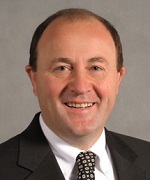 |
| Ludwig Hantson |
More than a year after announcing plans to spin out its drug business, Baxter ($BAX) has begotten Baxalta ($BXLT), a $6 billion standalone company with plans to elbow its way into the upper ranks of biopharma.
Making its market debut Wednesday, Baxalta inherits all of its parent company's on-the-market treatments, largely focused on hemophilia, and sets off with a pipeline padded by a string of recent deals. The company believes it can launch 20 of those in-development projects by 2020, heaping $2.5 billion in annual sales onto the roughly $6 billion in revenue it currently pulls in.
Leading Baxalta's hematology pipeline are BAX 855, a long-acting hemophilia A drug awaiting FDA approval, and BAX 111, which the company submitted as a treatment for the rare von Willebrand disease. The company is also working through a mid-stage trials on a gene therapy for hemophilia B and a treatment for sickle cell disease.
In immunology, Baxalta gained a promising treatment in its $225 million buyout of Germany's SuppreMol earlier this year, pushing that drug through Phase II trials in lupus and idiopathic thrombocytopenic purpura. And in oncology, Baxalta's checkbook has brought in Merrimack's ($MACK) pancreatic cancer treatment MM-398, CTI BioPharma's ($CTIC) myelofibrosis drug pacritinib and Onconova's ($ONTX) rigosertib, each of which is in late-stage development.
Under the leadership of former Baxter BioScience chief Ludwig Hantson, the company is planning to amp up its focus on partnerships and open R&D moving forward.
In 2014, Baxalta inked a 12-year lease on a 200,000-square-foot operation in Cambridge, MA's Kendall Square, cozying up to world-class research institutions and an increasingly popular hub for biotech innovation. The new facility will host about 400 researchers focused both on internal R&D and on scouting for partnerships in the area, according to Hantson, who rang the opening bell on the New York Stock Exchange on Wednesday.
"We are building a purpose-driven culture, one where employees and partners are empowered to contribute new ideas that will deliver strong performance for shareholders, breakthrough therapies and personalized services for patients, and meaningful and sustained value for all stakeholders," Hantson said in a statement.
- read the statement